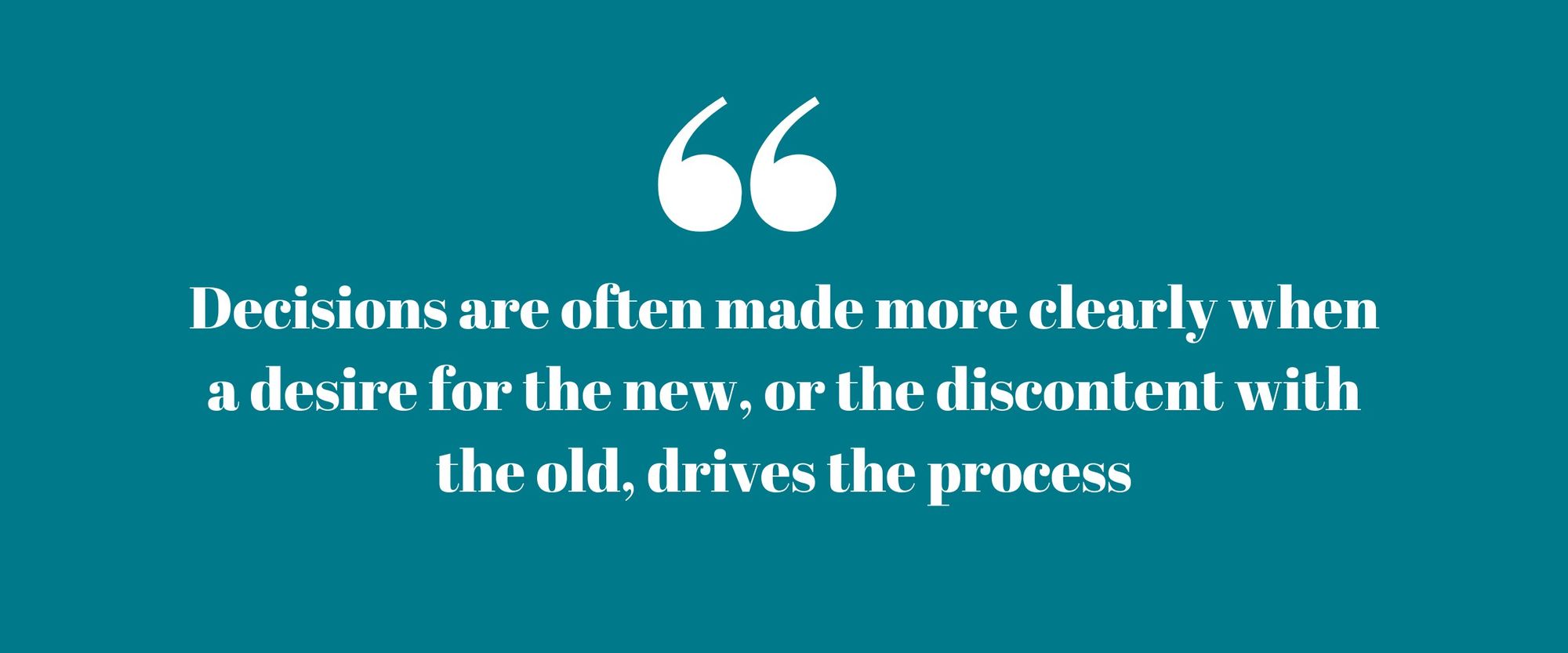
Stuck in survival mode? Here's how to make good decision making during uncertain times and stressful moments
There are moments in life when adrenaline is coursing through your body and your pulse is racing, but decisions still need to be made. It can be a crisis that has happened in a split second, something that has been a constant in your mind for years, or it may be something that has been building to a tsunami. In these moments, when you sit on the crest of the wave, what happens? Does being in a crisis bring clarity, or confusion?
A crisis can leave you awash with emotions, and has both a physical and neurological impact, explains psychotherapist Gin Lalli, who says: “When we feel threatened, we go into the fight, flight, or freeze mode. Our primitive instincts literally take over and we go into ‘survival mode’. This is very useful in situations like hearing the fire alarm, or hitting the emergency brake in the car. It’s instinctual and immediate. Unfortunately, it’s much the same for all types of crises. The primitive part of your brain – the amygdala – kicks in and tries to look after you.”
In a crisis, when action is demanded immediately, this can be life-saving. But when your brain goes into survival mode when you are not in immediate danger, it will engage all of the measures for survival. Physical symptoms include quickened respiratory and heart rates, as well as hypervigilance and hyper-focus. This happens at the expense of the ‘advanced brain’, which becomes secondary until we calm down. However, in a prolonged crisis, we can face months and months of high alert. It’s exhausting.
Cognitive function shifts, and, therefore, so too do our decision-making abilities. Gin continues: “The primitive brain is not innovative, therefore it’s not creative; it can’t come up with solutions, it’s just in pure survival mode.” She argues that, as a result, any decisions we make in this state will be irrational and emotional. “They will lack clarity, and probably falsely assess the situation,” she states, “rather than being objective, rational, and intelligent.”
As the crisis continues, there is a ‘rewiring’ in the brain as the neural pathways to the amygdala are strengthened. Our basic instincts become our strongest instincts; and although they are designed to keep us alive, they can also overwhelm us. Panic can set in, or an urge to make an immediate decision without balanced consideration.

Gemma Metcalfe-Beckers is an entrepreneur and mother of two. She founded her community-led fashion brand, Strong Girls Club, after experiencing PTSD following the birth of her second daughter. She agrees with Gin that decision-making while in the middle of the storm would have been impossible. However, the crisis provided both the core mission for her business, and the impetus to found it. She says: “I had to be on the pathway to recovery in order to start the business. I started it at the point where I’d found the life raft, and was in the process of healing. The business itself was a huge part of my recovery.”
Gemma adds that creating the community around SGC was a key point in her journey back to health. “I don’t think I would be as strong as I am now, had I not started the business when I did. It gave me a wonderful sense of purpose, and it also showed me what a positive impact I was having on others. It helped me to feel found, when I felt truly lost before.”
Sonia Ovenden is a TEDx speaker and author. She faced a health crisis that she says did not bring clarity in the traditional sense of a clear plan of action, but did force change. It brought an urgent awareness of how close she was teetering to burnout. She says: “Prior to the health scare, I was living life almost on autopilot. I would get up, go to the gym, go to work, come home, have dinner, watch TV, and go to bed, and the next day I’d hit the repeat button.”
She knew she was in a downward spiral, but it wasn’t until she faced a potentially life-threatening diagnosis that a decision was actually made to alter her life. “Deep down, I knew I was reaching burnout, but hadn’t reached a point to decide for change. I’d toyed with the idea of things changing, but nothing ever did, or should I say, I never made the decision. So, yes, the health crisis was the wake-up call I needed to propel the decision to change my life.”
For Sonia, the decision to quit her corporate career and find a new path was made after the crisis had been averted, but when she was still reeling from the psychological impact of it. The crisis brought the need for change – her mental fatigue and unhappiness – right to the surface where she had to face it. She says: “Decisions are often made more clearly when a desire for the new, or the discontent with the old, drives the process. While a crisis may feel awful at the time, it often brings with it a level of clarity.”
Solution-focused psychotherapist Gin Lalli suggests the following:
. Recognise what is happening (are you panicking?) and focus on becoming calm before you make any decisions.
. If you are panicking, focus on your breathing, walk away from the situation, even sleep on it if you can.
. Gather as much information as possible; make sure you get facts. Do not make assumptions.
. Ask for help, speak to experts who are used to these situations, e.g., if your crisis is financial, can you speak to a financial advisor? If your crisis is to do with health, speak to a medical professional – again, you’re gathering facts not assumptions.
. Keep checking in with yourself– are you eating, sleeping, and exercising properly? This will keep your intelligent brain engaged, objective, creative, and rational.
. Make sure you can offload your 'negative' emotions in a safe way; speak to a trusted friend, family member, or therapist.
For her, personally, it was facing what she needed more of, and less of, in her life. It brought feelings and thoughts she had internalised to the forefront of her mind, and then she could make a balanced decision as to what to do next. Without the crisis, she admits she would still be on the corporate treadmill – if she had managed to stave off the collapse she has since recognised was looming.
There are also situations where the crisis is that a decision needs to be made. The two are one and the same, and therefore it’s impossible to navigate the crisis and then make the decision. However, argues Gin Lalli, the tools to ride the wave will remain the same. Recognise that your primitive brain is trying to help you survive – some fear is healthy in decision-making – but you need the advanced brain to help you make a rational decision.
Calm and time, when possible, are key here. One deep breath may be all you can take, but do take it. If there is no immediacy, focus on calming your limbic system, take stock of the situation, and start ordering the facts. You may, all the while, be furiously paddling to keep afloat, but you can’t see the life raft if you are splashing about and have salt in your eyes.
A crisis brings confusion, and sadly often pain, but clarity is often following in its wake. Focus on riding the wave – use breath, sleep, professional advice, or friends and family – whatever you need to just get to the shore.

